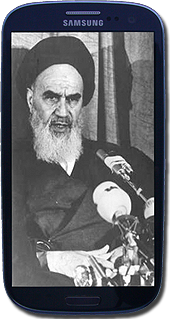![Central Bank of Iraq [Public domain], via Wikimedia Commons http://commons.wikimedia.org/wiki/File:Baghdad-bank-hires.jpg Central Bank of Iraq [Public domain], via Wikimedia Commons http://commons.wikimedia.org/wiki/File:Baghdad-bank-hires.jpg](https://www.exportlawblog.com/images/central_bank_of_iraq.png)
ABOVE: Central Bank of Iraq
Another day on the Hill, another round of sanctions against Iran. As if there were nothing else for these politicians to do. Academic question: how many could actually point out Iran on an unlabeled map? Just a thought.
The newly proposed sanctions are in H.R. 850, imaginatively titled the Nuclear Iran Prevention Act of 2013 which today was voted out of the House Foreign Affairs Committee. The bill, with the euphonic acronym NIPA, is likely to pass both the House and the Senate, there being nothing else, apparently, on the legislative agenda.
One of the major features of the proposed legislation is to extend the secondary sanctions on foreigners who deal with Iran. Currently those secondary sanctions basically cover petrochemical transactions. NIPA would give the President the authority to impose sanctions on foreign individuals who engage in a “significant” transaction with the Central Bank of Iran or other designated Iranian financial institutions for the purchase of goods or services by or from a person in Iran.
But the most interesting provision was one that was slipped into today during the committee markup. In an Amendment in the Form of a Substitution a new section 205 was added That section prohibits a foreign financial institution from opening a correspondent account at a U.S. financial institution if the foreign bank facilitated a “significant” transaction with the Central Bank of Iran or any other designated Iranian bank in a currency other than that of the country in which the foreign bank is operating.
The target of these sanctions is unstated but seems clear. The United States has objected to the Central Bank of Iraq permitting Elaf Islamic Bank to participate in its weekly hard currency dollar auctions even though Elaf had been designated under CISADA for supplying U.S. dollars to Iran. Perhaps implicitly acknowledging the political and diplomatic repercussions of sanctioning the Central Bank of Iraq, the proposed bill permits the President to grant waivers. Â This gives Congress a version of plausible deniability and the ability to blame the Executive Branch if these new sanctions go awry.

 Posted by
Posted by  Category:
Category: 


 Samsung has just
Samsung has just  OFAC announced on Friday a
OFAC announced on Friday a  Qantas says it is
Qantas says it is 

